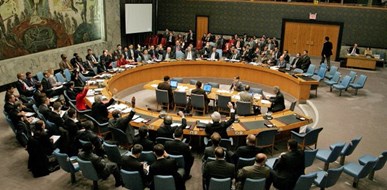[Recording] Ombudsperson to the UN Security Council ISIL (Da’esh) and Al-Qaida sanctions committee: protecting human rights in counterterrorism sanctions
Published 19 June 2020
The Office of the Ombudsperson to the ISIL (Da’esh) and Al-Qaida Sanctions Committee is tasked to assist the United Nations Security Council’s Committee by reviewing delisting petitions independently and impartially, and to recommend either retention or delisting after consulting with all relevant parties, including with the petitioner.
Last week, the Office of the Ombudsperson to the ISIL (Da’esh) and Al-Qaida Sanctions Committee commemorated its ten-year anniversary during an online panel discussion on 15 June 2020, co-organised by the Asser Institute and ICCT-The Hague. The unique ‘reverse consensus model’ that the Security Council Committee uses, as well as the fact that more than 70% of petitioners are delisted via the Ombudsperson procedure, were highlighted during the event. Several panelists argued the ‘reverse consensus model’ is integral to the Ombudsperson’s process.
The panel discussion comprised the current Ombudsperson, Daniel Kipfer Fasciati, and two former Ombudspersons, Kimberly Prost and Catherine Marchi-Uhel. For the first time, all three Ombudspersons discussed their experiences discharging a quasi-judicial function in the highly politicised environment of UN Security Council counterterrorism sanctions policies. Additionally, Devika Hovell, associate professor in Public International Law at the London School of Economics and Political Science, and Gavin Sullivan, senior lecturer in Law at the University of Kent and international lawyer who represents delisting petitioners on a pro-bono basis, reflected on the Ombudsperson’s unique mandate and issues to be resolved. Asser researcher and ICCT research fellow Christophe Paulussen moderated the event.
Watch the full recording here:
Targeted sanctions
Targeted sanctions have come to be viewed as an indispensable tool in the fight against terrorism. Since 1999, the UN Security Council has designated hundreds of individuals and entities, imposing assets freezes, travel bans and arms embargoes to hinder support for Al-Qaida and ISIL (Da’esh). However, as the number of designations has grown, a clear need has also emerged for a robust independent review procedure, so that those designated can seek the removal of their name from the sanctions list. Currently, 260 individuals and 86 entities are listed by the Committee, consequently leading to an assets freeze, a travel ban, and an arms embargo.
The Office of the Ombudsperson was created by UN Security Council Resolution 1904 of 17 December 2009, with the purpose of addressing the lack of a due process procedure for those targeted by UN sanctions on the then-Al-Qaida list. Now, ten years later, the Office of the Ombudsperson has accepted 91 delisting petitions and completed 83 cases. More than 70 % have resulted in the removal of the petitioner’s name from the list.
Reverse consensus
The Permanent Members of the United Nations Security Council can use their veto power to block resolutions. However, when it comes to an Ombudsperson’s recommendation to delist, the Council’s ISIL (Da’esh) and Al-Qaida Sanctions Committee uses a novel approach, namely that of the reverse consensus. This means that only one of the fifteen Members needs to support the delisting recommendation for it to go ahead, provided that no member of the Committee requests that the matter be referred to the Security Council.
Former Ombudsperson, Judge Kimberly Prost, explains how the reverse consensus approach came about:
Further reading
Information on the status of cases of the Office of the Ombudsperson
Information on the sanctions list
Upcoming: Advanced summer programme on terrorism, counter-terrorism and the rule of law (24-28 August 2020)
Are you working in the field of counter-terrorism or aiming to? Then join our renowned online Advanced summer programme on terrorism, counter-terrorism and the rule of law, which is coming back for the 10th time to bring together top experts, academics, and policymakers from around the world working in the field of counter-terrorism. The live online summer programme will take place on 24-28 August 2020.
Click here to see last year’s reviews (video) and sign up to profit from the Early Bird fee.
